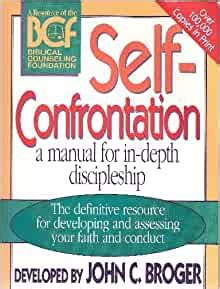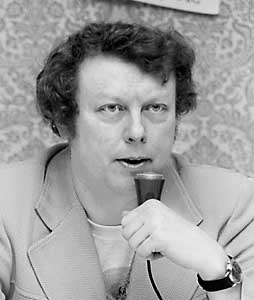A Quote by Herbert Spencer
The present relationship existing between husband and wife, where one claims a command over the actions of the other, is nothing more than a remnant of the old leaven of slavery. It is necessarily destructive of refined love; for how can a man continue to regard as his type of the ideal a being whom he has, be denying an equality of privilege with himself, degraded to something below himself?
Related Quotes
How much reverence has a noble man for his enemies!--and such reverence is a bridge to love.--For he desires his enemy for himself, as his mark of distinction; he can endure no other enemy than one in whom there is nothing to despise and very much to honor! In contrast to this, picture "the enemy" as the man of ressentiment conceives him--and here precisely is his deed, his creation: he has conceived "the evil enemy," "the Evil One," and this in fact is his basic concept, from which he then evolves, as an afterthought and pendant, a "good one"--himself!
God intends and expects marriage to be a lifetime commitment between a man and a woman, based on the principles of biblical love. The relationship between Jesus Christ and His church is the supreme example of the committed love that a husband and wife are to follow in their relationship with each other.
Nothing about his life is more strange to [man] or more unaccountable in purely mundane terms than the stirrings he finds in himself, usually fitful but sometimes overwhelming, to look beyond his animal existence and not be fully satisfied with its immediate substance. He lacks the complacency of the other animals: he is obsessed by pride and guilt, pride at being something more than a mere animal, built at falling short of the high aims he sets for himself.
Man can will nothing unless he has first understood that he must count on no one but himself; that he is alone, abandoned on earth in the midst of his infinite responsibilities, without help, with no other aim than the one he sets himself, with no other destiny than the one he forges for himself on this earth.
When every one is to cultivate himself into man, condemning a man to machine-like labor amounts to the same thing as slavery. If a factory-worker must tire himself to death twelve hours and more, he is cut off from becoming man. Every labor is to have the intent that the man be satisfied.... His labor is nothing taken by itself, has no object in itself, is nothing complete in itself; he labors only into another's hands, and is used (exploited) by this other.
And, moreover, when it happens that both are sincere and good, nothing will mix and amalgamate more easily than an old priest and an old soldier. In reality, they are the same kind of man. One has devoted himself to country upon earth, the other to his country in heaven; there is no other difference.
No man could bring himself to reveal his true character, and, above all, his true limitations as a citizen and a Christian, his true meannesses, his true imbecilities, to his friends, or even to his wife. Honest autobiography is therefore a contradiction in terms: the moment a man considers himself, even in petto, he tries to gild and fresco himself. Thus a man's wife, however realistic her view of him, always flatters him in the end, for the worst she sees in him is appreciably better, by the time she sees it, than what is actually there.
...being human always points, and is directed, to something, or someone, other than oneself—be it meaning to fulfill or another human being to encounter. The more one forgets himself—by giving himself to a cause to serve or another person to love—the more human he is and the more he actualizes himself.... What is called self-actualization is not an attainable aim at all, for the simple reason that the more one would strive for it, the more he would miss it. In other words, self-actualization is possible only as a side-effect of self-transcendence.
If a person is cold and rigid, he feels within himself as if he were in a grave. He is not living, he cannot enjoy this life for he cannot express himself and he cannot see the light and life outside. What keeps man from developing the heart quality? His exacting attitude. He wants to make a business of love. He says, 'If you will love me, I will love you.' As soon as a man measures and weighs his favors and his services and all that he does for one whom he loves, he ceases to know what love is. Love sees the beloved and nothing else.
More and more it seems to me that the philosopher, being of necessity a man of tomorrow and the day after tomorrow, has always found himself, and had to find himself, in contradiction to his today: his enemy was ever the ideal of today. So far all these extraordinary furtherers of men whom one calls philosophers, though they themselves have rarely felt like friends of wisdom but rather like disagreeable fools and dangerous question marks, have found their task, their hard, unwanted, inescapable task, but eventually also the greatness of their task, in being the bad conscience of their time.





































